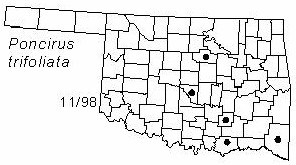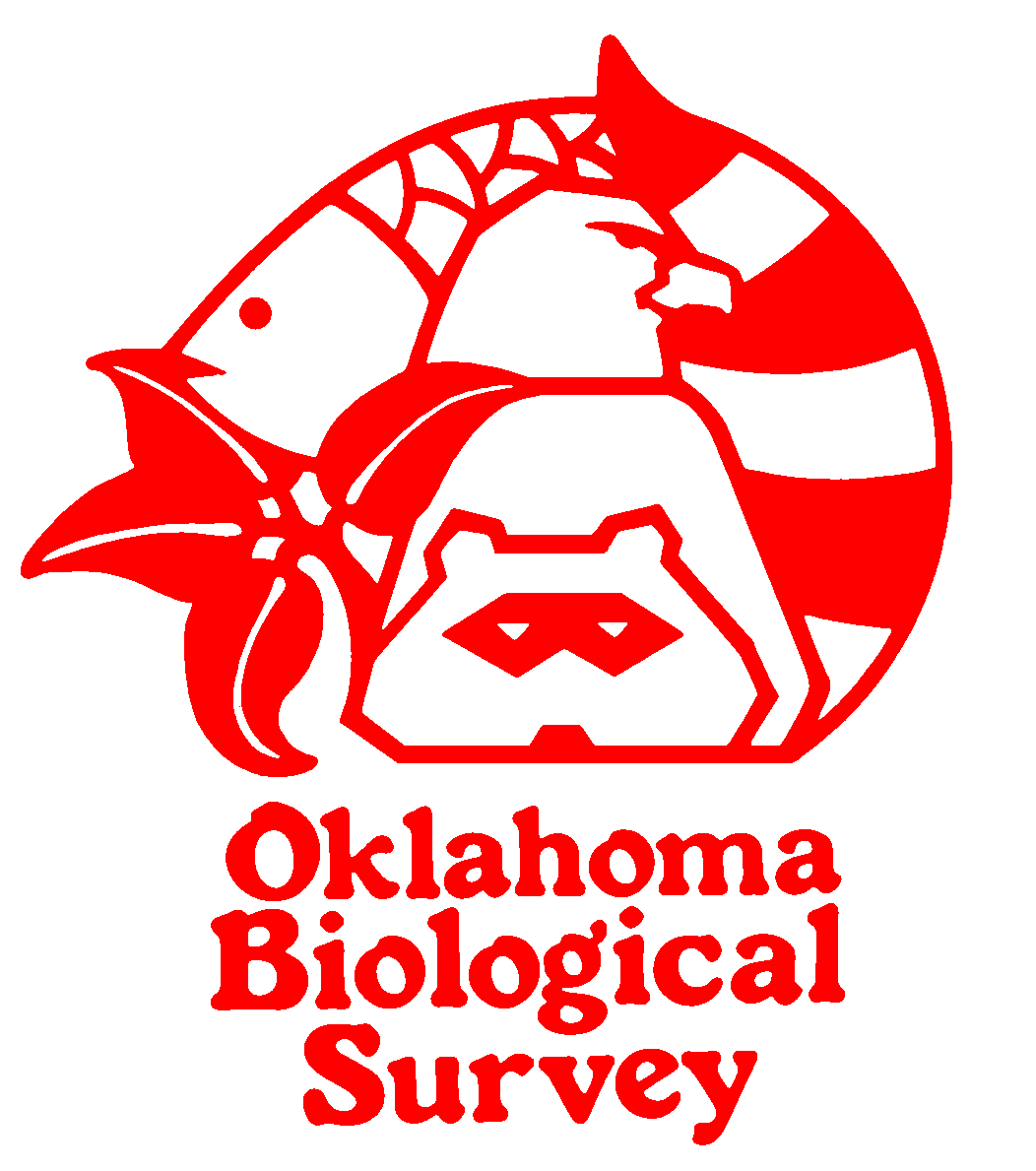Large shrub or small tree to 10 m (30 ft) tall. Bark green with brown streaks. Twigs dark green, flattened, glabrous, flattened spines 0.8-7 cm (0.3-2.75 in) long. Leaves alternate, palmately compound, trifoliate; leaflets elliptic, oblong to obovate, 2.5-6.4 cm (0.5-2.5 in) long; glabrous; olive green above, paler beneath; cuneate or rounded at base; obtuse or rounded at apex; margins crenate; leaflets sessile or with very short petioles, rachis broadly winged. Inflorescence axillary on the previous years growth; sepals ovate-elliptic; petals 5, thin, oblong to spatulate, much longer than sepals; ovary pubescent, 6-celled; stout and short; stamens 8-10; flowers appear in the spring. Fruit a berry, 3.8-5 cm (1.5-2 in) diameter, globose, yellow; seeds numerous, 6-12 mm (1/4-1/2 in) long and flat; fruits mature September to October.
Distribution: native of China and Korea. Brought to North America as an ornamental. Escaped from cultivation.
Habitat: old homesites, roadsides, abandoned fields
NWI Status: none
Comment: Poncirus is derived from an old French word for some citrus tree; trifoliata refers to the three leaflets.
Distribution in Oklahoma: 
BACK
NEXT
RETURN TO INDEX
Last update: 9/15/99
 Go to Oklahoma Biological Survey Home Page
Go to Oklahoma Biological Survey Home Page
 Disclaimer
Disclaimer